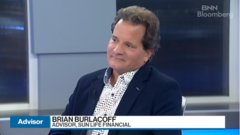Dec 21, 2022
Kim Bolton's Top Picks: December 21, 2022
BNN Bloomberg
Kim Bolton's Top Picks
Kim Bolton, president and portfolio manager, Black Swan Dexteritas
FOCUS: Technology stocks
MARKET OUTLOOK:
Last week, markets were looking ahead to a consumer price index (CPI) report for November. Markets were also expecting a relatively chilled FOMC statement and press conference from U.S. Federal Reserve Chair Jerome Powell in the wake of a Brookings Institution speech which came across as restrained if not overtly dovish. Unlike previous instances this year, the data did not create a major narrative violation.
Consumer prices came in lower than estimated and the only core measure that was particularly strong was rents; excluding those, core prices fell at an annualized pace of more than three per cent in November. Following a constructive October report that could have been enough to justify a cooling Fed on Wednesday, instead, the market was treated to a resounding effort at hawkish jawboning from Fed Chair Powell on Wednesday.
Instead of reflecting on the last two CPI reports positively, FOMC projections showed upgraded expectations for inflation in 2023, which led the committee to forecast another 50 basis points on the Fed Funds rate for year-end 2023. Not only does the market not think that rates will get above five per cent as unanimously forecasted by the FOMC, but futures are showing rate cuts starting in 2023.
The effort to sound hawkish midweek from Powell pushed rate futures up. There is still a downright epic disconnect between explicit FOMC guidance and the market, which doesn’t think the FOMC can do what it says it’s going to do.
In the wake of the global financial crisis, central banks and especially the Fed discovered the power of forward guidance to shape economic outcomes. With policy rates at the effective lower bound, forward guidance allowed central banks to push that low rate out the curve and suppress volatility of all kinds in pursuit of ever-looser financial conditions. The result was certainly simulative relative to the alternative.
Now, super-charged fiscal policy from the COVID period and rolling supply shocks have created a very different inflation backdrop and central banks are trying to use the same tool in the opposite direction. The Powell Fed is wary of hiking at 75 basis points per meeting chunks indefinitely, rightly intuiting that doing so until inflation drops will guarantee a recession. Instead, it is seeking to hike at a more modest pace that reduces the risk of a recession. But critically, Powell (and other central bankers like European Central Bank President Christine Lagarde) are using forward guidance to amplify tightening. The hope is that markets don’t take slower rate hikes and extrapolate forward to the end of tightening.
It’s all an open question of whether any of this will work or whether it’s even necessary. The dollar has peaked and the interest rate market is pushing back against the Fed’s effort at forward guidance for the terminal rate quite aggressively. That’s against a backdrop of falling inflation after a few solid reports that look likely to continue amidst disinflationary catalysts ranging from supply chain performance to the U.S. labour market slowing to the collapse in activity in China amidst a no-holds-barred release from COVID-zero.
It’s hard to look at the possibility of the Fed being forced to climb down from forecasts that are much more pessimistic than the market and conclude that said climb-down would be bad for stocks. If the economy is then able to avoid a recession, there’s little doubt that the bear market would be over. But both scenarios remain a major “if” for now and nobody wants to get fooled again. Even though your BSD portfolio management team believes the stock market has the fundamental, technical and capital flow tailwinds to rally sometime soon, we also appreciate that fighting the Fed and the bear market momentum is a battle that is not worth fighting. We will keep a defensive position until a positive risk-on sentiment takes hold.
- Sign up for the Market Call Top Picks newsletter at bnnbloomberg.ca/subscribe
- Listen to the Market Call podcast on iHeart, or wherever you get your podcasts
TOP PICKS:
Nintendo ADR (NTDOY OTC)
- Nintendo's operations include a dedicated game console, mobile game, and IP licensing businesses and the manufacture and sale of Karuta playing cards.In the core game console business, the Nintendo Switch, released in March 2017 and now in its sixth year on the market, has likely reached the middle of its life cycle. Even so, we believe it will continue to generate strong earnings for the following reasons:
- Nintendo has many popular classic titles in its game library, including Mario Kart 8 Deluxe and Super Smash Bros Ultimate. While they have been on the market for a long time, we believe they will support stable Nintendo Switch diffusion as popular first-time titles for new Nintendo Switch buyers.'
- The new title pipeline is healthy.
- We expect the expansion of the Nintendo Switch Online subscription plan lineup and paid downloadable content sales will contribute to earnings as new revenue streams. Unlike the past, we believe Nintendo can transition to a new generation console without suffering a large drop in earnings.
- Nintendo Co., Ltd. was founded in 1889 and is headquartered in Kyoto, Japan.
- Management policy briefing takeaways:
- Around 30 per cent of Nintendo Switch hardware released in fiscal year 2023 is being purchased as a second or subsequent console amid a steady increase in the number of multiple console/console-per-person households.
- Management said it is looking to sustain Nintendo Switch momentum into fiscal year 2024 and aims to capture diversifying demand.
- The company said there were more than 3.6 mn Nintendo Switch Online accounts (fee-paying subscribers) at end-September, up from more than 3.2 mn at the end of September 2021, the previous update.
- Nintendo has consistently maintained a software development approach that looks to leverage the characteristics of individual IP. In recent years, it said that it has become easier to obtain data and feedback from users. However, Nintendo does accept all of these suggestions but analyzes them carefully to develop new types of gameplay and enjoyment.
ASML Holding (ASML NASD)
- ASML Holding develops and services advanced semiconductor equipment systems consisting of lithography, metrology, and inspection-related systems for memory and logic chipmakers.
- The company provides extreme ultraviolet lithography systems; and deep ultraviolet lithography systems comprising immersion and dry lithography solutions to manufacture various ranges of semiconductor nodes and technologies.
- The company’s current Extreme Ultraviolet Lithography (EUV) machine is used by TSMC, Samsung and Intel.
- Robust demand backdrop driven by a broad array of applications that benefit the Logic segment, for example smartphone, High-Performance Computing (HPC), 5G, AI, Virtual/Augmented Reality and autonomous driving.
- Commitment of Memory customers to EUV illustrates the continued importance of ASML's offering.
- ASML is working through the supply chain challenges related to chip shortages, materials and components.
- Continuous product improvement on EUV, with no showstoppers to High Numerical Aperture (NA) high-volume manufacturing.
- Takeaways from ASML roadshow:
- Demand for ASML tools in 2023 is to a significant extent influenced by long lead times, with logic the largest driver,
- Ability to supply lithography tools is still significantly lower than customer demand.
- Any direct or indirect China impacts from regulation to be absorbed near term by demand in other regions.
- Longer-term (2030) recently raised targets for ASML are influenced by an expanded TAM, Logic player competition and other factors.
- PayPal is well-positioned to benefit from all aspects of growth in and around digital payments, commerce, and services.
- Payments from digital wallets are expected to outpace that of cards worldwide. Europe’s adoption of PayPal as the preferred method of payment over cards is evident in countries such as Germany, France, and Italy.
- It is becoming more of a presence in physical retail through the implementation of QR codes at the point of sale. Major retailers that are implementing this are CVS and Nike.
- PayPal’s presence on the merchant side gives them access to merchant sales data, as well as customer spending data.
- Teaming up with Amazon to enable customers in the U.S. to pay with Venmo at checkout. Starting next year, customers will be able to make purchases on Amazon.com and the Amazon mobile shopping app using their Venmo accounts.
- PayPal increased its purchase now, pay later services on June 15 of 2022; now, monthly payments can be spread out over longer periods of time. Customers may now access this for free and without any risk thanks to PayPal businesses. In summary, this might increase sales for retailers without having any negative effects.
- Third-quarter 2022 payments volume on PayPal’s platforms jumped 14 per cent to $337 billion, missing the $343.2 billion average estimates from analysts. PayPal said it now expects revenue for the year to jump 10 per cent to $27.5 billion, compared with an earlier forecast of $27.85 billion.
- Revenue during the quarter jumped 12 per cent to $6.85 billion. That was ahead of the $6.81 billion analysts predicted and PayPal said it now expects adjusted profit to be as high as $4.09 a share, up from the $3.87 to $3.97 it previously expected.
- The company has vowed to reduce expenses, including through job cuts and the shuttering of offices across the country. It has said will result in $900 million in savings this year and $1.3 billion next year.
- PYPL reiterated its 2023 expectations for at least 15 per cent EPS growth with at least 100 bps of EBIT margin expansion.
- U.S. e-commerce trends during the holiday period to date have been roughly in-line with PYPL's expectations for flat to low-single-digit growth, with the company estimating that it held or slightly gained share in branded checkout in November.
- PYPL expects 2023 e-commerce growth to be similarly muted, if not slightly worse, on continued weakness in the U.K., the ongoing Ukraine/Russia war and the risk of a shallow recession in the U.S.
| DISCLOSURE | PERSONAL | FAMILY | PORTFOLIO/FUND |
|---|---|---|---|
| NTDOY OTC | Y | Y | Y |
| ASML NASD | Y | Y | Y |
| PYPL NASD | Y | Y | Y |
PAST PICKS: December 29, 2021
Unity Software (U NYSE)
- Then: $144.55
- Now: $27.82
- Return: -81%
- Total Return: -81%
Crowdstrike (CRWD NASD)
- Then: $206.87
- Now: $106.32
- Return: -49%
- Total Return: -49%
Oracle (ORCL NYSE)
- Then: $88.21
- Now: $81.02
- Return: -8%
- Total Return: -7%
Total Return Average: -46%
| DISCLOSURE | PERSONAL | FAMILY | PORTFOLIO/FUND |
|---|---|---|---|
| U NYSE | N | N | N |
| CRWD NASD | Y | Y | Y |
| ORCL NYSE | Y | Y | Y |













